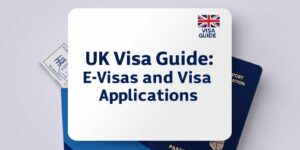Understanding Domestic Abuse Injunctions in the UK

Living with domestic abuse can feel isolating and frightening. It takes immense courage to seek help. If you are experiencing abuse, know that you are not alone, and there are legal steps you can take in the UK to protect yourself and your children. One powerful tool is a court order called an injunction. Understanding how these orders work is the first step towards safety.
This information explains what domestic abuse injunctions are, who can get them, how the process works, and where to find support. It helps you clearly understand your rights as a victim of domestic abuse.
What Counts as Domestic Abuse?

Domestic abuse isn’t just physical violence. It’s any incident or pattern of controlling, coercive, threatening behaviour, violence, or abuse between people aged 16 or over who are, or have been, intimate partners or family members. This can include:
- Physical abuse: Hitting, slapping, pushing, or any other physical force.
- Emotional or psychological abuse: Threats, intimidation, humiliation, isolation, verbal abuse.
- Coercive control: A pattern of behaviour designed to make you dependent, isolated, or subordinate, controlling aspects of your everyday life.
- Financial abuse: Controlling your money, preventing you from working, running up debts in your name.
- Sexual abuse: Any sexual act forced upon you without your consent.
Recognising these signs is important. If you are experiencing any form of this behaviour, you are potentially a victim of domestic abuse. UK residents need to know help is available.
How the Law Can Protect You: Injunctions Explained
The court gives an injunction to protect you from further harm. It sets legal rules that the abuser must follow. There are two main types relevant to domestic abuse situations in the UK:
Non-Molestation Order (NMO)
This order aims to stop the abuser from harming or threatening you or your children. It can prevent them from:
- Using or threatening physical violence.
- Intimidating, harassing, or pestering you.
- Contacting you directly or indirectly (including texts, calls, social media, or through other people).
- Coming near your home, workplace, or other specified locations.
Essentially, it orders the abuser to stop the abusive behaviour.
Occupation Order (OO)
This type of order deals specifically with the family home. The court can decide who has the right to live there, even if you don’t own it or aren’t on the tenancy agreement. An Occupation Order can:
- Allow you to stay in or return to the home.
- Exclude the abuser from the home and potentially the surrounding area.
- Decide who pays the rent or mortgage.
- Set rules about how you both use the home if you continue living there (though this is less common when abuse is involved).
This is particularly relevant for victims of domestic abuse housing concerns, ensuring they have a safe place to live, potentially without the abuser present. You can apply for both types of orders at the same time if needed.
Who Can Apply for an Injunction?
You can apply for these injunctions if the person abusing you is someone you are “associated” with. This includes:
- Your current or former spouse or civil partner.
- Your current or former cohabitant (someone you live/lived with as a couple).
- Someone you are or were engaged to marry.
- A close family member (like a parent, sibling, or grandparent).
- The other parent of your child.
Domestic abuse affects people of all backgrounds, genders, and sexualities. Support and legal options are available for everyone, including any male victim of domestic abuse. UK citizens should be aware of this.
The Process: How to Get an Injunction

Understanding what to do if you’re a victim of domestic abuse can feel overwhelming. Here’s a simplified breakdown of the steps involved in applying for an injunction:
Step 1: Seek Advice and Support
- Legal Advice: It’s highly recommended to get advice from a victim of domestic abuse lawyer who specialises in family law. They understand the court process and can help build the strongest case for you.
- Helplines: Contacting a victim of domestic abuse helpline is a vital first step. Organisations like the National Domestic Abuse Helpline can offer confidential advice, support, and signposting to local services.
Step 2: Gather Evidence (If Safe)
The court needs information to understand why you need protection. Evidence can include (only gather this if it is safe for you to do so):
- A diary detailing incidents (dates, times, what happened, any witnesses).
- Photographs of injuries or property damage.
- Copies of abusive emails, texts, voicemails, or social media messages.
- Police reports or incident numbers if you reported incidents.
- Medical reports or notes from your GP about injuries or the impact on your health.
- Letters from support agencies you’ve contacted.
Step 3: Apply to the Family Court
- Your solicitor will help you complete the necessary application form (usually form FL401).
- This form details the abuse you’ve experienced and the type of order you are seeking.
- It includes a sworn statement (witness statement) outlining your situation.
- The application is submitted to your local Family Court.
Step 4: Court Hearings
The court will schedule a hearing. You (or your solicitor) will need to attend.
- Emergency Orders: If you are in immediate danger, your solicitor can ask the court for an emergency ‘without notice’ (ex-parte) order. This means the abuser isn’t told about the hearing beforehand, allowing for swift protection. The court can sometimes grant these within 24-48 hours in urgent cases. A follow-up hearing will then be scheduled, where the abuser can attend.
- Full Hearings: If the court doesn’t need to grant an emergency order—or after granting one—it will likely hold a hearing where you and the abuser (or their lawyers) can present your information. The judge will listen to both sides before making a final decision. The court handles hearings sensitively and can put measures in place to help you feel safer, like separate waiting rooms or screens.
Step 5: Serving the Order
Once the court grants an injunction, someone must formally deliver it to the abuser to make it legally binding and enforceable. Your solicitor will usually arrange this.
Costs and Financial Help: Legal Aid
Worries about cost should not prevent you from seeking safety. Financial help is often available:
- Victim of Domestic Abuse Legal Aid: This government funding can cover the costs of a solicitor to help you get an injunction. Eligibility depends on:
- Means Test: Your income, benefits, savings, and assets are assessed. Use the gov.uk online checker to see if you might qualify.
- Merits Test: The Legal Aid Agency needs to see that your case has merit (reasonable chance of success). For protective injunctions, this is usually met if you can provide evidence of the domestic abuse.
- Evidence for Legal Aid: To get Legal Aid based on domestic abuse, you usually need specific proof for the Legal Aid Agency, such as:
- A letter from a GP, health visitor, or other health professional.
- A letter from a domestic abuse support organisation.
- A police report or evidence of criminal proceedings.
- Proof of a previous injunction or court finding.
- A letter from social services.
Note: Most evidence typically needs to be dated within the last 5 years. A solicitor can advise on this.
- Applying for Legal Aid: You apply through a solicitor who holds a Legal Aid contract. They will assess your eligibility and apply for you.
- Help with Court Fees: Even if you don’t get Legal Aid for solicitor fees, you might get help paying court fees based on your income (fee remission).
What Happens After an Injunction is Made?
- Duration: Injunctions are usually granted for a set period, often 6 or 12 months. They can sometimes be extended if protection is still needed.
- Breaching the Order: This is very serious.
- Breaching a Non-Molestation Order is a criminal offence. If the abuser breaks the terms of the NMO (e.g., contacts you, harasses you, or comes near your home), call the police immediately (999 if you are in danger). They can be arrested and potentially face up to 5 years in prison.
- Breaching an Occupation Order is usually dealt with as contempt of court, which can also lead to penalties like fines or imprisonment. Report breaches to your solicitor and potentially the police.
Protecting Children
If children are involved, their safety is paramount. Alongside injunctions, the court can make orders under the Children Act 1989:
- Prohibited Steps Order (PSO): Prevents a parent from taking certain actions without court permission (e.g., removing a child from your care or their school).
- Specific Issue Order (SIO): Allows the court to decide on a specific aspect of a child’s upbringing when parents disagree (e.g., schooling, medical treatment).
Your solicitor can advise if these are needed alongside an NMO or OO.
Finding Further Support

Taking legal action is one part of finding safety. Accessing emotional and practical support for victims of domestic abuse UK-wide is also crucial. Remember these resources:
- National Domestic Abuse Helpline: 0808 2000 247 (Freephone, 24/7) – Run by Refuge.
- Women’s Aid: Offers webchat support and information online.
- Initiative: Supports male victims of domestic abuse. Helpline: 01823 334244.
- Galop: Supports LGBT+ people experiencing domestic abuse—helpline: 0800 999 5428.
- Citizens Advice: Can provide general guidance and signposting.
For specific situations, such as those involving immigration status, specialist advice is available. Migrant victims, for instance, may need information related to the appendix victim of domestic abuse guidance under immigration rules, and charities supporting migrants can assist with this.
Taking the Next Step
Deciding what to do if you’re a victim of domestic abuse is a deeply personal journey. Getting a court injunction is a significant step towards ensuring your safety and establishing boundaries. Family law solicitors guide people through the process with care, even if it seems complex.
Remember, reaching out for help is a sign of strength. Contacting a helpline or a solicitor can provide you with the information and support needed to make informed choices about your safety and future. You have the right to live free from fear and abuse.
Read more about How to Deal with Workplace Bullying in UK
Source / Ref.: Gov.uk Ncdv.org.uk Childlawadvice.org.uk Contains public sector information licensed under Open Government Licence v3.0.
Written by [Ketan Borada / British Portal Team] – Founder of British Portal, dedicated to providing accurate and up-to-date information on UK public services and benefits.






















